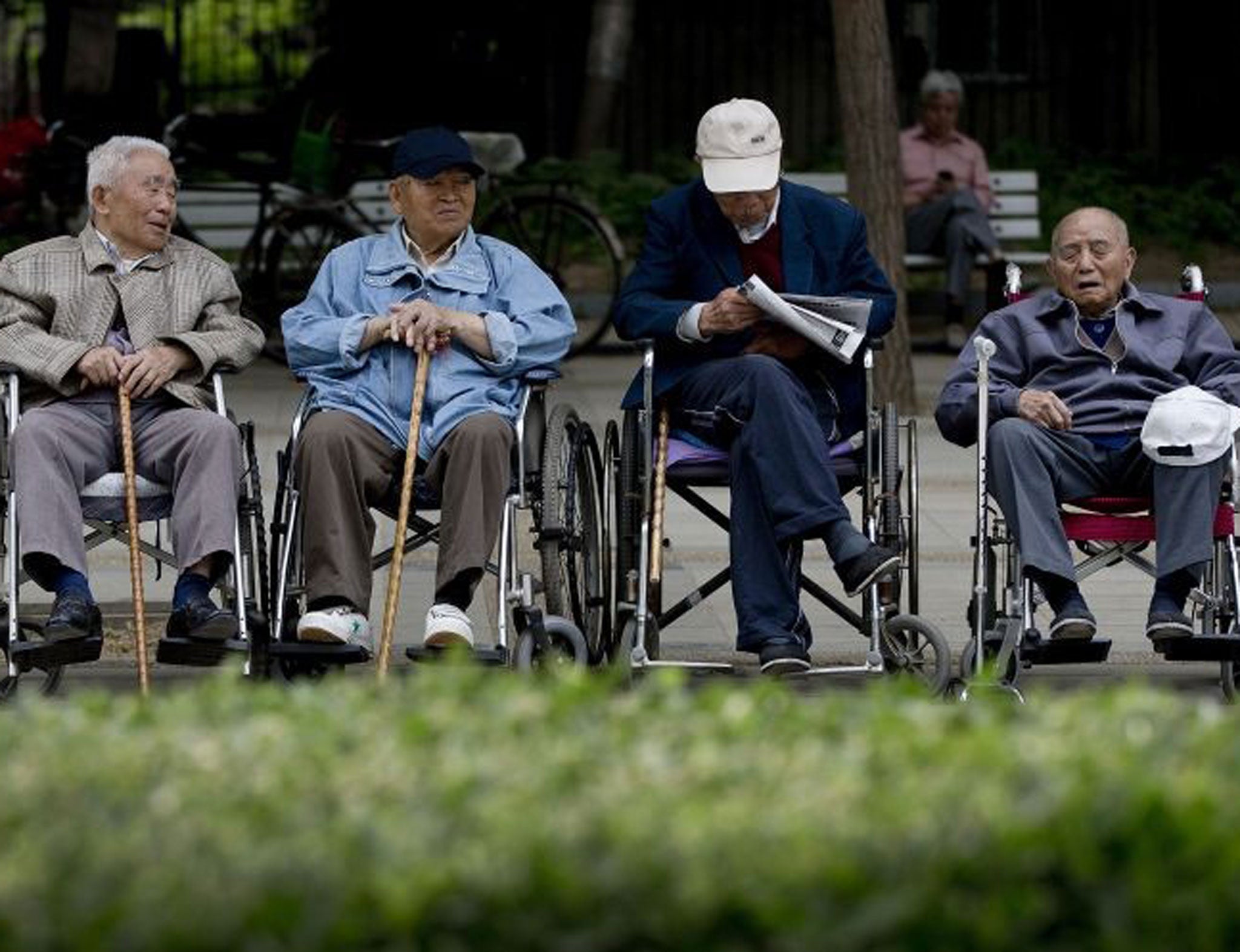China law forces adult children to visit and care for their elderly parents
New law has already been criticised for being too vague

A new law has come into effect in China which requires adult children to visit and care for their ageing parents.
The “Protection of the Rights and Interests of the Elderly People” bill says children must care for their parents' “spiritual needs” as well as their physical needs – which are already protected by law – as they grow older.
Filial devotion is a serious business in China, and is deeply etched in the national psyche. But the transformation of Chinese society over three decades of reform has played havoc with the traditional family model, as younger generations leave home to work in cities, and no longer stay behind to care for their aged parents. Retirement homes are a rarity, and decent pension provision is also a long way away.
The new law, which has been criticised for being too vague, says those children who do not live with their parents must visit or at least “greet them frequently”. If the offspring do not obey this clause, parents can apply for mediation, or bring a case against their children to court.
However, it remains unclear exactly what can then happen to those who shirk their duty.
Even in a Confucian society the law has met with hoots of derision – the pressures of earning a living in modern day China and mass urban migration mean most people have only about 10 days a year they can spend with parents. China has about 400 million migrant workers, and many have one holiday a year, at Chinese New Year.
”I think the law is too general,“ Shanxi jiujiu wrote on the Chinese social network Sina Weibo. ”It doesn't add any specific new duties and there is no specific punishment for children who ignore their parents. So I think this will be just propaganda and a regulation to encourage people to do so. It won't be carried out by force.“
Xu Zhenhua, a Shanghai lawyer, told the Shanghai Daily newspaper that it remained unclear how often people should visit.
”Also, there is no clarification of the punishment for people who break this clause of the law,“ said Mr Xu.
China’s one-child policy, launched in the 1970s to keep a lid on population growth, has led to a major change in the proportion of older people and younger people in China.
A survey by state broadcaster China Central Television found that about 11.9 per cent of young people had not visited their parents in years while 33.4 per cent saw them just once a year.
By the end of last year, 193.9 million people, or 14.3 per cent of the Chinese mainland population, were aged 60 or above, according to the Ministry of Civil Affairs. By 2050, about 31 per cent will be over 60.
Join our commenting forum
Join thought-provoking conversations, follow other Independent readers and see their replies
Comments
Bookmark popover
Removed from bookmarks